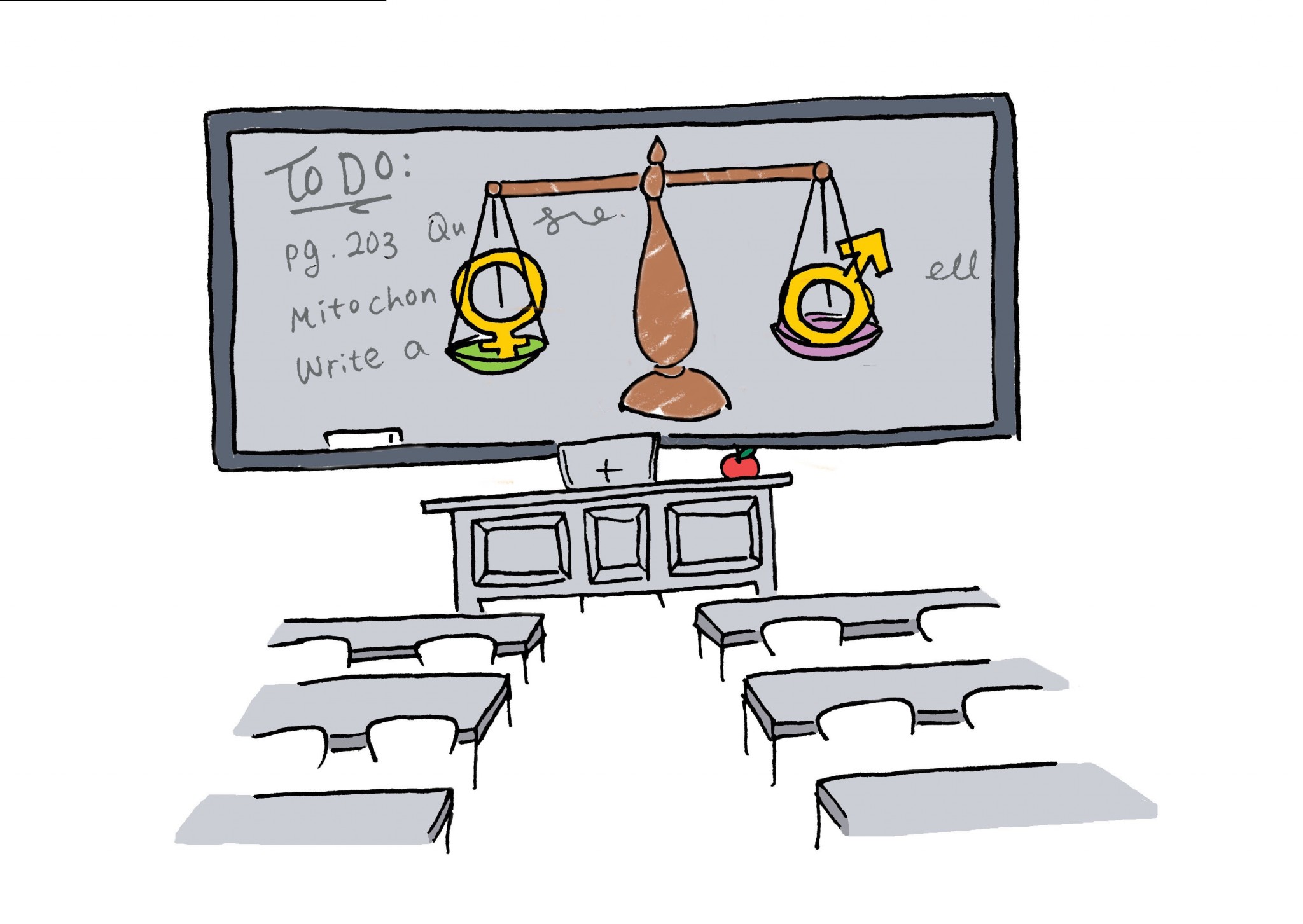Sex education classes are making a partial comeback in Quebec this year. The pilot program is an improvement, as it fills a void that has existed since 2005 (the last year that Quebec had dedicated sexual education classes).However, the Ministry of Education, Recreation and Sports (MERS) does not go far enough with this policy. The program, as it is currently planned, does not follow a strict curriculum and is not precisely designed to be taught by professionals.
The provincial government has designed a two year pilot project which will affect 15 schools and 8,200 students starting this year. Sex education is a matter of public and personal health. If taught properly, it can promote civic competences by teaching students about important issues such as rape, slut-shaming, and LGBT discrimination. Sex education also teaches students about protecting themselves from STIs, avoiding unwanted teen pregnancy, and seeking help for psychological troubles linked to sex.
In Ontario, concerns that the curriculum contains inappropriate content has led some parents to keep their children home. Masturbation, for example, goes against some religious beliefs. As a result of the backlash, Ontario is allowing parents to request exemptions on a case-by-case basis. It is probably only a matter of time until similar backlash occurs in Quebec, but MERS must not permit any leniency.
Under the pilot program being instituted in Quebec, parents cannot seek to exempt their children from this program simply because their views conflict with an unbiased and professional perspective. Parents in Ontario who have been pulling their children from sexual education classes for religious or personal reasons are fighting against a tide that has already changed. Children without sexual education are a risk to public health. If parents try to pull their kids out of sex education classes, the school should have meetings with these parents to discuss the matter and persuade them of the importance of universal, mandatory sex-ed. Whatever their belief system, there is no compromise for the safety and the health of future generations.
The intention of the new curriculum is grounded in social reality and will prepare students for safe, healthy sexual relationships. But more must be done to ensure this progress is productive.
As teenagers will undoubtedly learn about sex with or without a dedicated curriculum, it is better for them to learn it at school than from a friend who might have an immature and corrupted view of sex and sexuality. Teachers in Quebec do not know exactly what to cover because, according to the Federation of Teachers Unions, there are no “clear pedagogical guidelines,” unlike in Ontario. It is necessary to impose a precise provincial curriculum to make sure that every school teaches the same way and covers the same material to avoid a disparity of education, especially for religious schools, who could be less inclined to follow the curriculum.
Children ought to learn about sex and sexuality in a classroom setting. A way to make sure that disparity does not happen is to have a yearly ministerial exam for all students that does not count towards their report card, a measure that is not being studied by the government. This would ensure that all students go through a standardized and rigorous sexual education program.
Since it is not a separate class, it could be taught by any teacher with a who has only gone through a few hours of training. Therefore, the students who do receive the curriculum in its current form will likely only receive mediocre sex education at the expense of valuable regular subject time. To ensure that the program is worthwhile, more must be done to standardize a high calibre of teaching practices.
As a result of limited teacher training, students can get teachers who are uncomfortable, indelicate, or close-minded. It is a waste of resources and energy to develop a program with so little attention devoted to teacher training. It would be infinitely better to hire specialized sex educators to teach these classes as they are professionals in the subject to minimize training and adjustment. Furthermore, a curriculum made by and taught by specialists would make sure that subjects are being taught correctly and at the right age.










” ……unbiased and professional perspective…”
Seriously?
Author evidently has no idea what he/she is writing about.
Ontario Sex Ed states that gender is assigned at birth – for anyone familiar with the subject matter it’s clear that Wynne/Levin sex Ed is nothing but scientific or unbiased.
As a matter of fact it’s just clear embarrassment.
List of errors, omissions and/or outright bizarre statements is almost endless. Just another one out of countless examples:
intersex (anatomical/biological state of human body) is listed as one of six genders (social constructs).
Not less, not more – can you imagine something more ridiculous?